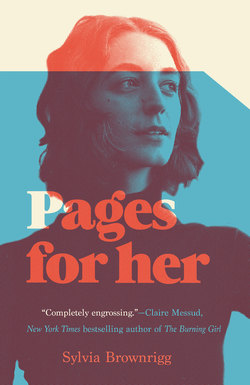Читать книгу Pages For Her - Sylvia Brownrigg - Страница 29
На сайте Литреса книга снята с продажи.
21
ОглавлениеFlannery’s daughter had a father.
This was a novelty.
Flannery saw, even drained as she was by her paradigm-shifting exhaustion – when a new mother believes she has sunk so far into sleep debt that it would require a government bailout, or intervention by the World Bank, to extract her – that her daughter had a father. Daily, that small miracle nourished Flannery. Charles held Willa and he cherished her, and Flannery had not in her own childhood known a man’s holding or his cherishing. How else could A Visit to Don Lennart have moved so many, and sold so well? The ache at the heart of that story, her fatherless melancholy, gave Flannery’s otherwise wry, jaunty tale of adventure and pilgrimage its salt and its truth.
A doer, an actor, Charles liked taking Willa places, even when she was tiny. He left the hands-on tasks – feeding, bathing, dressing – mostly to Flannery. This division was more unexpectedly lopsided than Flannery felt comfortable admitting to her friends, or sometimes even to herself, since when she did bring it up with Charles he responded to her perceptions with caustic disbelief. (‘Is that a line from the feminist playbook?’ he asked her once during a tart exchange about the unequal share of diaper changing. It proved an effective silencer.) But he did get their daughter out into the world, proudly pushing the sleek navy stroller that contained her, and enjoying the way strangers admired and smiled at a baby in a stroller, as well as the parent accompanying her. He liked taking her places not specifically separated out for children, so avoided playgrounds and toddler pools, but happily walked with Willa past the tattoo parlors and used-clothing stores of Haight Street, the exotic botanical gardens at Golden Gate Park, or art museums, galleries, art shops, hardware stores. By the time Willa was three, the hardware store was one of her favorite outings with Daddy, who indulgently let her pick up objects in the carpentry aisle, encouraging her to feel the texture of sandpaper, or even the heft of a hammer.
Daddy: hearing her daughter speak those two syllables re-arranged something within Flannery, fixed one of her inner workings, got some fundamental emotional mechanism to run more smoothly. She was forever grateful to Charles for that, and when her husband aggravated or disappointed her, demeaned her even, she reminded herself of this shift, and how permanent it was.
‘You won’t have the same material as me, sweetheart,’ Flannery whispered into her daughter’s perfect mollusk ear, as she splashed and cleaned her in the evenings in the large and elegant claw-foot tub. There, too, Charles’s previously tasteful arrangement of soapstone dishes on a weathered wooden cabinet had been brought downmarket by Willa’s brightly colored frog sponge, her waterproof Dr. Seuss books, and the bubble bath that smelled of fake strawberries. ‘You already have a very different story from mine.’
Willa might have nodded had she been older, but at that tender age she simply grew, as children do, into herself, as the particular braid of nurture and nature came together to form her.
From her father Willa inherited an infectious laugh, an urge to build, and a knack for playing with Legos that set her apart from her princessed peers. (She was focused, careful, and inventive as she wove imaginative tales in and out of her constructions.) Her dark eyes; her dimples; her square feet. From her mother she received thick fair hair; the ability to sit still, to observe and remember; a will not to do the done thing; strong teeth, and a smile that brought abrupt light to an otherwise serious, worry-tending face.
From both her parents, or more precisely how they were together, Willa acquired an innate uneasiness, borne of the unarticulated reality that neither father nor mother, given their own angled histories, knew properly what it was to be a family. They were attempting roles for themselves and the others in their triangle, as if posing constantly for hidden cameras. Husband and wife, father and mother – parts that Charles and Flannery had, after a few months of sex and camaraderie, pledged to play, in the presence of a dutiful bureaucrat one Valentine’s Day at City Hall. Scriptless, they were improvising, with mixed results.
